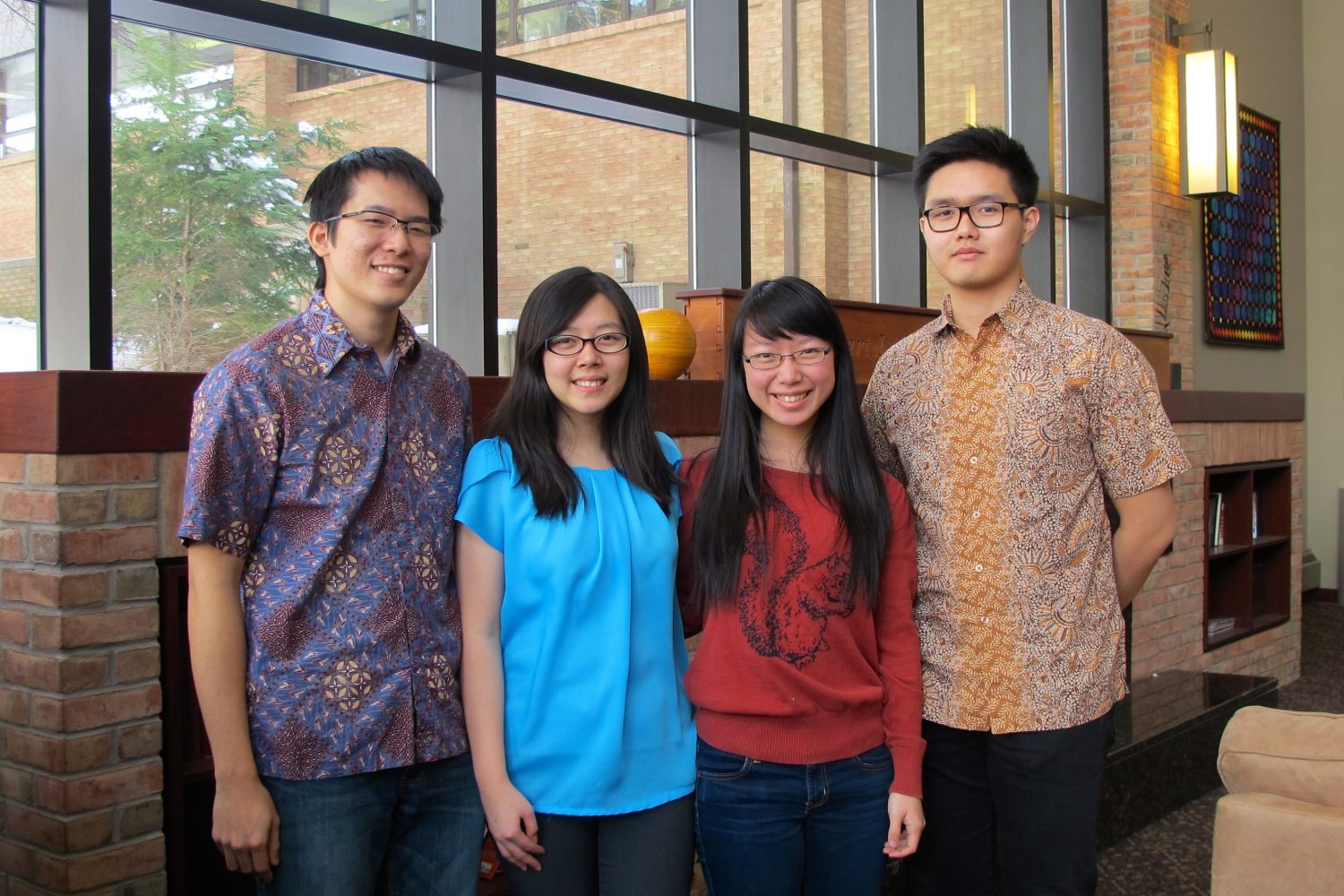Since its inception in 1995, Rangeela, the annual celebration of international culture and diversity, seeks to showcase stories and traditions from various cultures around the world.
This year, four Indonesian students, Aldo Daniel, Silvana Handjojo, Andrew Darmawan and Eunice Salim, got together to tell a story that hits close to home for many students at Calvin with Dutch roots.
Aiming to communicate the stories of individuals associated with Dutch colonialism in Indonesia, these students are putting together a narrative that explores the different attitudes of both Indonesians and the Dutch.
While many Dutch students at Calvin may not realize it, the Netherlands had a colonial presence in Indonesia for almost 350 years. While Indonesia declared its independence in 1945, the Dutch returned after World War II in an effort to reclaim the state.
According to the act’s leaders, the narrative follows the protagonist’s experience in encountering different perspectives of Dutch colonialism in Indonesia ranging from stories told from his grandfather, history lessons at school and from individuals that were either Indonesian or Dutch.
Junior Aldo Daniel, one of the group’s leaders, explained that the idea was not only a true story based on the experiences of an Indonesian Calvin graduate, but began in an education class with three of his fellow co-leaders.
“At first we had a couple different ideas,” said Daniel. “Andrew had an idea to do it as a Les Miserable musical to show patriotism and the fight for independence, but after talking we started to see history from two sides, from a ‘me’ to ‘we’ perspective.”
The idea of history having two sides, coined by history professor Dan Miller, is also an important objective of the Indonesian Rangeela act.
“We want the audience to learn how to view history from both sides as a complete story,” said Daniel. “For us Indonesians, we learned history from one side where the Dutch were bad. We never really got to hear some parts of that story that were true but just weren’t talked about.”
One example is a story by Pastor Mike Abma from Woodlawn CRC.
“[Abma] talked to us about how the Dutch viewed Indonesia as their American Vietnam, a war they were embarrassed by,” said Daniel.
From 1945 to 1949, following the Indonesian declaration of independence, the Dutch invaded Indonesia in an effort to reclaim their former colony.
“The soldiers went into Indonesia not knowing what they were fighting for or against,” explained co-leader and graduate student Silvana Handjojo.
A second objective is to invite the audience to break the silence. The act’s leaders want the audience to think and reflect upon any missing stories or perspectives in their own life stories.
The leaders also strived to establish a ministry of reconciliation through their act.
“That’s what we are hoping for,” said Handjojo. “The healing up of old wounds and the reconciling of the friendships that we should have.”
According to Handjojo, participants in the act also encountered a transformative experience.
“Just last week we had a lunch together with all the participants and asked them what they’ve learned through their preparation for this act,” said Handjojo. “It really surprised us that they actually had a change of mind, that they actually put more thought into this than I thought.”
“I thought they were just here to practice and perform but they even talked to their parents about it,” said Daniel.
In fact, act leaders wrote in their statement that, “preparing for the act helped us to explore the issue of reconciliation between the colony and the colonized because we get to also learn about our country’s history through the stories of individual people.”
The students are also hosting a follow up event titled “Bridging the Broken Past: A conversation about history and reconciliation” on Saturday, March 7 from 1-3 p.m. at the Woodlawn Ministry Center.








